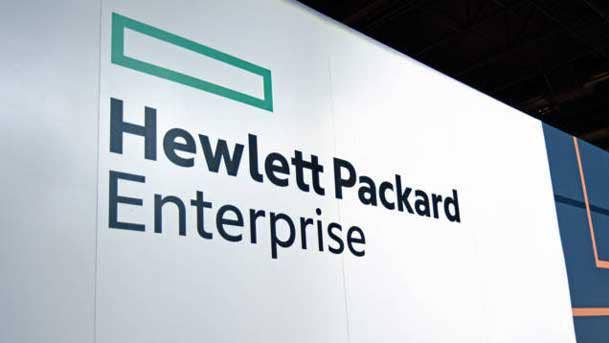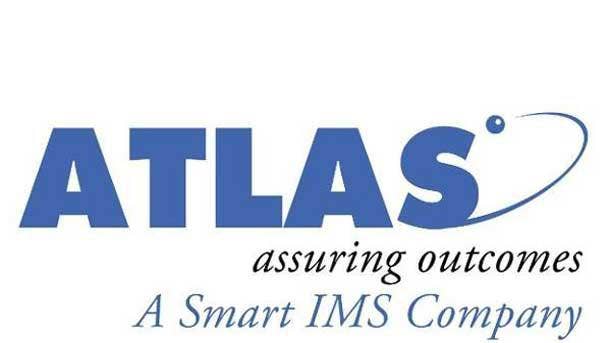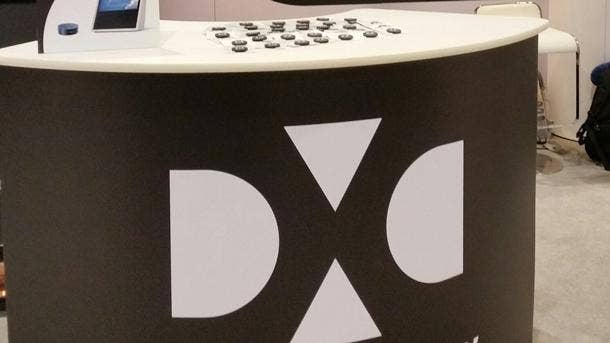3 Major DXC Technology Lawsuits That Made Waves In 2019
Whether it’s a $666 million win, a draw, or it’s still playing out in court, lawsuits against the business process outsourcing giant have claimed to reveal what goes on behind the scenes.

DXC Technology’s 2019 Court Battles
Three lawsuits over the past year have all made waves at DXC Technology, with much of the company’s inner workings laid bare in a tell-all fashion that paints a behind-the-scenes picture of a company still searching for itself.
One, filed by a former top executive, claims to reveal the machinations at play within its highest levels. Another shows the complicated, and messy process behind the scenes of the spin merger between CSC and HPE Enterprise Services that brought the company to life.
The most recent suit filed last week, not only accuses DXC of failing to pay a contractor $3 million in invoices, but also claims the ex-managing director of its Citibank account allegedly carried out a fraud scheme by hiring relatives and friends for jobs, then fabricating their time sheets and expenses.
Meanwhile, amidst these legal battles, the company’s value has suffered.
DXC shares have lost 49.51-percent of their value, plunging from $54.49 on Jan. 2 to $27.51 on Oct. 21. Last month, longtime CEO Mike Lawrie announced his immediate retirement. While he will remain with DXC as an advisor, the company’s new CEO, Mike Salvino, has taken control of the corner office.

Stephen Hilton vs. DXC Technology
Court: U.S. District Court of New York, Southern District
Docket #: 19-cv-01157
Filed: February 2019
Status: CLOSED
Stephen Hilton (pictured) was an executive vice president and rising star at Credit Suisse, when then-Computer Sciences Corp. CEO Mike Lawrie took him to dinner in late 2014 and asked if he would consider a role at CSC.
“The dinner was pleasant, though it had one peculiar moment,” Hilton later noted in the lawsuit. “Lawrie ordered a steak, but then Lawrie let his subordinate … divide up the meat for him. She took the plate from her boss and, using her boss's steak knife, split the pre-carved the meat onto a plate for him and for herself, then split the side dish, and then gave the plate back to her boss. This peculiar moment was a vivid early example of an important feature of Lawrie's personality: his inability to draw the line between the personal and the professional.”
[RELATED: Fired DXC EVP Stephen Hilton Fires Back At CEO In $14.3 Million Suit]
Despite his reservations about Lawrie, Hilton took the job, which -- after CSC and HPE Enterprise Services merged – turned into a large role at DXC. Hilton became the Executive Vice President, Head of Global Delivery, which oversaw 120,000 employees, 60,000 contractors, $14 billion in company assets and reported directly to Lawrie. Hilton was even discussed as a possible successor to Lawrie, his suit stated, and he was given generous stock awards for his performance.
However, the lawsuit accuses Lawrie of possessing a “toxic” management style that valued obedience above honest feedback, and, again, of having no boundaries between personal and professional roles.
“Hilton observed that Lawrie's treatment of many of his subordinates grew worse under the stress of the merger and its aftermath,” Hilton wrote. “DXC executives who had come from Hewlett Packard were often taken aback by the conduct of their new CEO. Several such executives approached Hilton separately for advice about how to handle Lawrie.”
But when Hilton’s “candid” assessments of Lawrie got back to the boss, the relationship went south, the lawsuit stated. Soon, Hilton was out of the loop, and his reviews began to suffer, according to his lawsuit. It wasn’t long before Hilton was given a warning, then a final notice. He was fired in July 2018. Hilton claims Lawrie ordered changes to the vesting dates of his stock options “without contractual or other legal authority” in a move that cost Hilton some $20 million.
In its response, DXC denied Hilton’s claims about the dinner, the “toxic” style, and that Lawrie had changed the vesting date’s of Hilton’s stock – “without legal authority.”
After months of back and forth, DXC and Hilton agreed to dismiss the suit in July, with each side opting to pay its own legal fees and court costs, a sign that typically means the parties have settled out of court.

DXC Technology vs. HPE
Court: U.S. District Court, Southern District New York
Docket #: 19-cv-07954
Filed: August 2019
Status: CLOSED
Four days before CSC and HPE-Enterprise Services were set to sign the documents in May 2016 that would eventually form DXC Technology, an accountant with Deloitte discovered HPE Enterprise Services was carrying 10,000 leases as debt that would be transferred to DXC upon completion of the deal.
The $1.3 billion of “capital lease” liabilities were “intercompany leases” for assets such as mainframes, servers, laptops and desktops that HPE Enterprise Services used to provides services to customers.
[RELATED: Arbitrators Slam HPE Financial Services’ CFO For ‘Altered Documents’ In DXC Case]
HPE Financial Services CFO Ian Fowlis rushed back from a trip to India and came up with a solution: Fowlis would convert the leases from capital leases, which regulators count as debt, to “operational leases” which – for reporting purposes – are not considered debt. The deal was struck and once the converting was done, Fowlis’ solution would erase the red off of DXC’s ledger.
But according to an arbitrator’s award document, filed in federal court, not only did Fowlis fail to convert the leases, but he created an “informational stonewall” when DXC officials began asking questions, then fabricated evidence that HPE submitted to arbitrators who were weighing the dispute. All of this resulted in DXC being handed a massive $666 million settlement to offset the $1.3 billion in debt.
The details of the dispute were kept under wraps until DXC sought to have the arbitrator’s award order enforced in court, at which time a federal judge demanded the companies file their paperwork publicly. Both companies have declined to comment on the matter, beyond saying they are glad to have it resolved.

Atlas Communications Technology Inc. vs. DXC Technology
Court: U.S. District Court, New Jersey
Docket #: 19-cv-19033
Filed: October 2019
Status: OPEN
Atlas, which also goes by the name ASIMS, is a Plainsboro, N.J. contractor originally hired by HPE Enterprise Services to handle end-user technical support at Citibank locations nationwide. The company kept the contract through HPE’s spin merger with CSC, and in May 2017 it was renewed by DXC, according to their lawsuit.
However, earlier this year, DXC told Atlas that an internal investigation has uncovered discrepancies with invoices on the Citibank account.
[RELATED: Ex-DXC Technology Manager Accused Of ‘Fraud Scheme’ In Citibank Dealings: Lawsuit]
DXC told Atlas that DXC Account General Manager Mark Angarola was at the center of alleged fraud, and some Atlas consultants also were involved in “Angarola’s scheme.”
“According to DXC, Angarola directed the hiring of certain consultants and contractors who were friends and family of Angarola and had those individuals submit fabricated time sheets and expenses to Atlas for payment to DXC,” the lawsuit says.
When reached by CRN, Angarola said “None of it is accurate.” He declined to comment further. DXC would also not talk and a lawyer for Atlas told CRN the lawsuit “speaks for itself.”
During the investigation, Atlas continued to provide services to Citibank on behalf of DXC, the suit says. Meanwhile, DXC repeatedly assured Atlas it would pay outstanding invoices. Then in July and August, DXC began offering jobs to Atlas employees, the suit says, such that by the end of August more than 50 had moved to DXC.
Atlas said by doing so, not only have the employees have run afoul of their contracts with Atlas, but they have cost the company $4 million in revenue. Then in September, DXC told Atlas it had no intention of paying Atlas the $3.05 million it says it is owed.
DXC has not yet filed a response to this lawsuit.

What’s Next For DXC?
DXC’s new CEO Mike Salvino -- who comes to the job with more than 30 years of IT industry leadership, most recently working as managing director at Carrick Capital Partners, a private equity firm – said shoring up existing customer base is job number one.
“My primary focus right out of the chute will be that existing customer base, which I think is incredibly important to DXC,” he told investors on a call last month. “Of course, I’m going to use my relationships in the industry, along with working with my talented leadership team to penetrate as many new clients as we can. Right now, our focus will be on our existing clients, growing those new ones, getting them into the digital transformation journey, and obviously getting new logos as best we can.”
Salvino was group chief executive of Accenture Operations from 2009 to 2016, leading 100,000 employees in that unit on a growth journey to 20 percent with $7 billion in annual revenue by the time he retired. In February 2014, he was inducted into the International Association of Outsourcing Professionals, Outsourcing Hall of Fame during a ceremony at the Outsourcing World Summit in Lake Buena Vista, Florida.
Meanwhile, Lawrie is still a member of the board, and is helping ease the transition to the new regime.